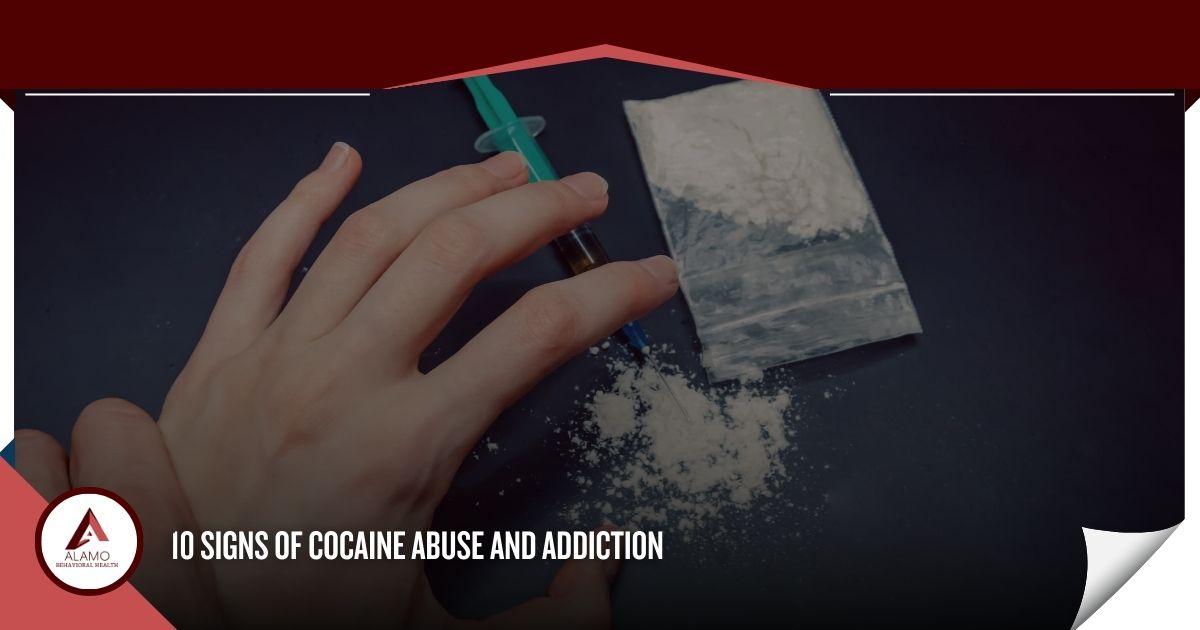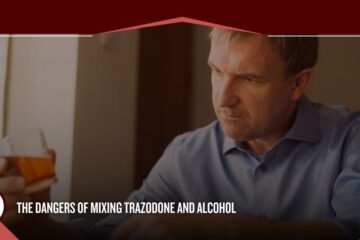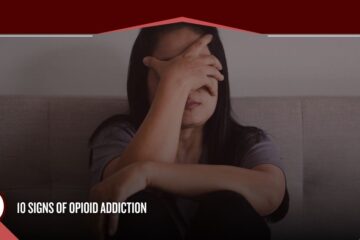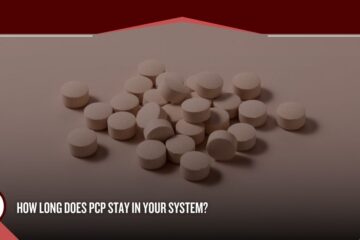Cocaine is a highly addictive stimulant drug. People who abuse cocaine may experience a range of short and long-term effects. Cocaine use changes how your body and brain function. These changes can make it very challenging to stop using cocaine, even when it causes severe problems.
It is important to seek treatment for cocaine abuse as soon as you recognize a problem. This article will detail ten of the most common signs of cocaine addiction. You will learn how cocaine addiction develops and how to find help.
If you or a loved one exhibits cocaine addiction symptoms, seek treatment as quickly as possible. Contact the Alamo Behavioral Health specialists now to explore our holistic treatment programs. Our admissions staff can answer your questions, verify your insurance, and schedule an intake appointment. Call today to begin your recovery journey.
Cocaine Abuse and Addiction: An Overview
Cocaine is a potent stimulant drug. People make cocaine from an extract of the South American Coca plant. Cocaine is available in several forms, including a whitish powder and a solid called crack cocaine.
The Drug Abuse Warning Network (DAWN) released research showing cocaine use has increased in the United States in the past 50 years. Cocaine-related deaths have increased, and the number of people seeking treatment for cocaine addiction has risen sharply.
Research from the National Institute on Drug Abuse (NIDA) shows that about 4.8 million people aged 12 and over had used cocaine in 2021. It also showed about 1.4 million people in the US were addicted to cocaine.
Cocaine changes how your body makes dopamine. Dopamine is a brain chemical involved in pleasure and reward systems. People who use cocaine experience a range of pleasant effects, including euphoria and increased energy. These effects may make them want to use the drug more often.
Over time, repeated cocaine use can lead to physical dependence and addiction. People who develop a substance use disorder (SUD) typically require comprehensive addiction treatment and ongoing support to avoid relapse.
10 Signs of Cocaine Abuse and Addiction
Cocaine use can change how someone feels, looks, thinks, and behaves. Recognizing cocaine abuse and addiction can help you get treatment.
Here are ten of the most common signs and symptoms of cocaine abuse.
1. Mood changes
Cocaine use can lead to significant, noticeable changes in a person’s mood. They may have mood swings. You may notice someone quickly going from happy and energetic to depressed and irritable.
Cocaine users often feel euphoric and energetic while using the drug. After the effects wear off, they may sink into depression, feel irritable, or experience fatigue.
2. Changes in appearance
Cocaine is a potent stimulant. People who use cocaine may lose their appetite and have increased energy. This can lead to dramatic, quick weight loss. Cocaine users may also become malnourished, which can lead to other health complications.
People who use cocaine may also have dilated pupils or appear sweaty. They may neglect their hygiene. You may see whitish powder on their face, hands, or clothing.
3. Cardiovascular problems
Cocaine increases central nervous system (CNS) activity. It constricts blood vessels, which can increase blood pressure and cause other cardiovascular problems.
Cocaine users with a history of cardiovascular problems have an increased risk of heart failure, chest pain, stroke, heart attack, and other life-threatening complications. However, anyone who uses cocaine can experience these problems, even without other risk factors.
4. Mental health problems
Using cocaine can put people at risk of mental health problems, including anxiety and paranoia. Research suggests that cocaine-induced paranoia is common, with up to 84% of users experiencing it. In some cases, users may experience lingering paranoia that lasts for weeks.
5. Nasal and sinus damage
Users who snort the powder form of cocaine may experience severe sinus damage. Cocaine is abrasive and can erode the delicate lining of the throat and nasal passages.
Sinus damage can affect a person’s breathing, speech, and ability to swallow. It can also cause serious, irreversible cosmetic problems.
6. Skin problems
One common effect of cocaine is the sensation of having bugs under the skin. Users may pick or scratch their skin, resulting in scarring, infections, and other problems.
People who inject a combination of heroin and cocaine face the risk of bloodborne diseases, skin infections, and scars.
7. Cognitive issues
Research shows that people with cocaine abuse and addiction often face cognitive issues, including:
- Shorter attention span
- Declarative memory deficits
- Poor working memory
These issues can impair a person’s functioning. In many cases, these cognitive issues are irreversible.
8. Risky behaviors
Cocaine use affects a person’s judgment. Using cocaine increases the risk of engaging in risky behaviors, including:
- Driving under the influence
- Using other addictive substances
- Risky sexual behaviors
- Participating in illegal activities
Impaired judgment may lead to life-threatening behaviors, accidents, or injuries.
9. Movement disorders
Research suggests a link between cocaine abuse and a higher rate of movement disorders, including:
- Tourette syndrome
- Parkinson’s disease
- Dyskinesias
- Myoclonus
- Acute dystonia
People with a long history of cocaine use may be at increased risk of developing a life-altering movement disorder.
10. Isolation
Popular media depicts cocaine as a party drug, but many users become isolated as their addiction takes over. People who abuse cocaine may isolate themselves to avoid being “discovered” or because of paranoia.
Find Help for Cocaine Addiction Today
If you or a loved one lives with cocaine addiction or other forms of substance abuse, you are not alone. Reach out to the team at Alamo Behavioral Health now to explore your cocaine addiction treatment options or schedule an intake appointment.




